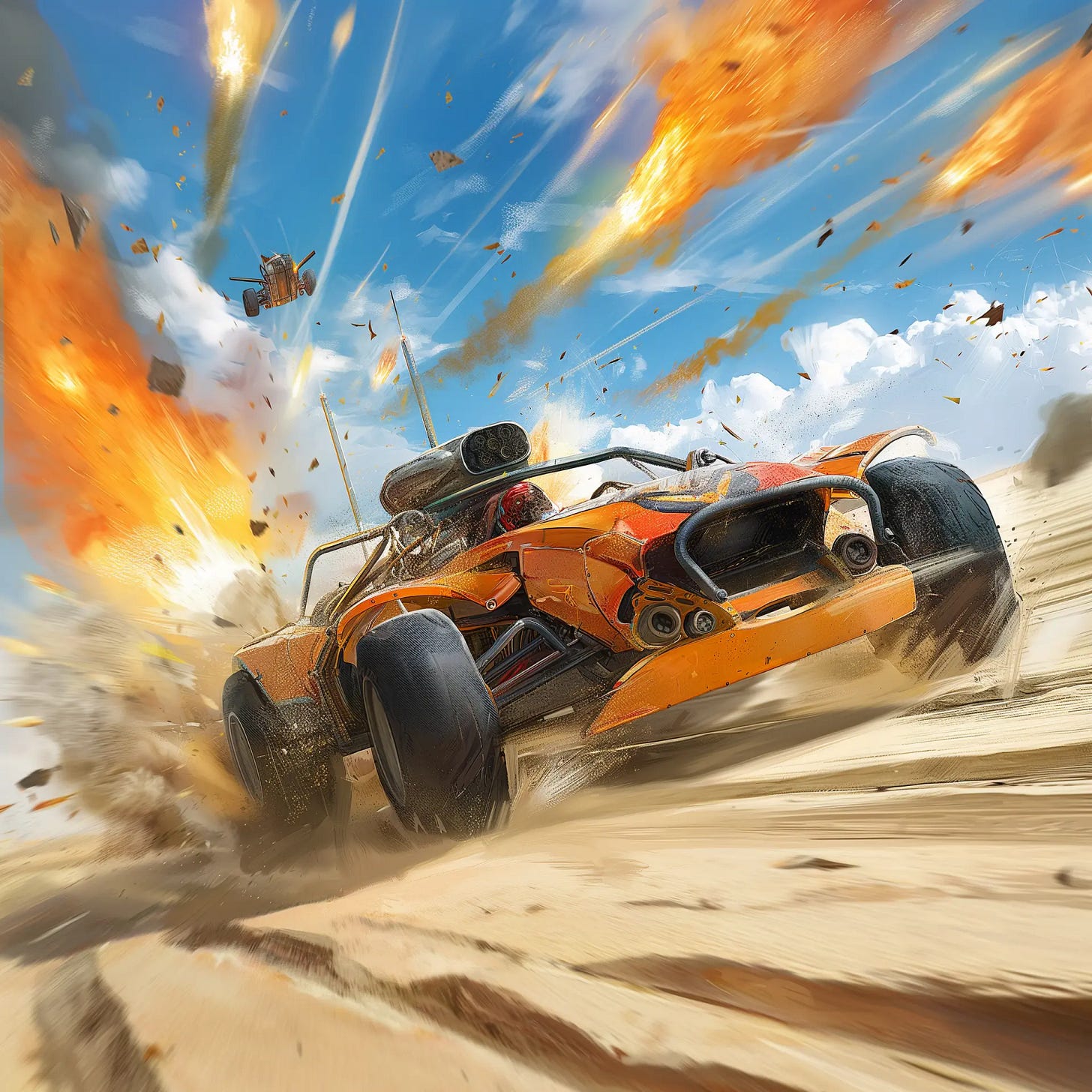
“Anyway, so I was speeding toward the bridge, wind in my hair, must have been going 120 …”
“Uh huh,” encouraged four pipsqueak voices. Four pairs of bright eyes stared up at Codger the Younger (as he was known. What his momma called him was lost to history, though maybe not to the Social Security office).
“The wide aircars angry as hornets, chasing right behind. Racing back toward my uncle’s farm, would I make it?” Codger moved his hands mysteriously in a semi-circle and bellowed. “Vroom! Vroom!”
The children were unaware of the specifics but not the meaning. This was a race! A loud one, with lots of action. Some gasped. The little girl gave a wriggling shriek.
“When suddenly there appeared before me a bridge, with spans and arch ribs … you know what arches are?”
The kids nodded at the same time they shrugged with guilty little eyes.
“Arches tall as elephants. Bridge span narrow as the way to heaven. Me? I fit. Barely. I lose a mirror. Racing through, I hear the wood groan. Snap! Crack! But I make it. Whoo!” Codger mimed threading a needle.
The children giggled. One boy was moved to jump to his feet. He then realized he wasn’t the one racing, and wilted down to chew his thumb.
“The aircars, though. They couldn’t fit. Couldn’t fly over. And they couldn’t go around. Can’t pass over water, you know, and there was plenty of that. Stopped in their tracks! Utterly defeated! Oh, how they howled! Lost to good ol’ rubber! You shoulda seen ‘em! One guy jumped out and stomped the ground! He was eating his hat, he was! Mad as your mom at the sight of a muddy floor.”
The children yelled and clapped. The woman sitting in the back chuckled darkly.
“Ooh, just to celebrate I did 180 all the way back to ‘Nuncle’s. Chapped my lips and did the wind burn my face, and oh did that beer feel good afterwards to wash down all the dirt and dust. We hid the car back under the mats and straw and started the barbeque to cook the steaks – you could do both back then. Fire, a real camp fire, right into the night. Searing meat, you kids ever smell that? Nothing better in the whole world. Oh, cat’s whiskers. Those were the days.”
Codger muttered to himself for a moment, losing his audience. That was fine, he’d told the tale.
“I think I’ve heard that song before,” whispered his daughter, Monica, grinning as she shooed her brood into the backyard so she could enjoy a glass of wine with her father in peace.
“Who do you think played it for you, eh?” Codger popped the cork to the bottle he’d been saving to share with his beloved progeny. Real cork, real glass, real wine from real grapes. Wind in his proverbial hair.
“Careful, it’s the good stuff,” he cautioned her as she followed her first appreciative sip with four more.
“Who cares? It’s not like I have to drive,” Monica scoffed. No one had to, not when they were packed together like sardines. She had learned to accept the chafe, but her father had a way of reminding her of the trade-offs in heroic, half-remembered tales. This was the only patrimony he could provide: there is such a thing as the feeling of the wind in your hair, of open countryside, of bright sunlight unhemmed by the shadows of apartment blocks.
“That’s true,” admitted Codger.
He’d never actually driven himself. He’d never raced aircars in a sports car. Neither existed anymore. But he told the story better than his dad had, though not half as well as his old grandad. Codger the Elder had been fortunate enough to hear the mechanical music, as alluring as the ancient song of the spheres. It must have been magic, to captivate children still.
They sipped in silence for a long moment, solitude shared by a burgundy river and broken by the occasional playful shriek from the tiny, high-fenced yard.
“Shifting and drifting,” sang Monica into her glass.
Whatever that meant.
Author’s note: Codger’s tall-tale inspiration is, of course, “Red Barchetta” by Rush.



